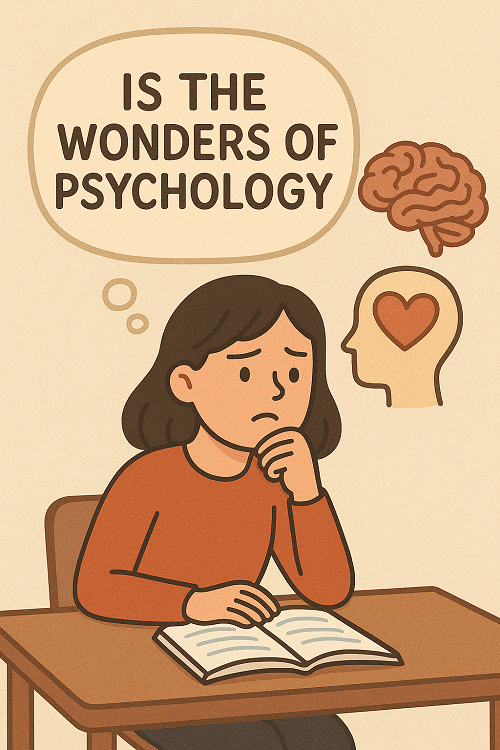Among the modern sciences all have revealed such wonders of
Nature compared with which the wildest fairy-tales look to be sober
statements. For example, the science of biology opens before us a world
of struggling, evolving, changing animal species which altogether
revolutionises our entire outlook on life and man. Geology has given us a
view of the formation of mountains, rocks, seas and deserts; mountains
are seen rising from the bowels of the earth and rivers carrying down
from them the dust of continents to be.’ Astronomy and physics,
similarly, reveal to us hitherto unperceived relations and entities and
spaces and periods compared to which the life of the sun and farthest star
is nothing.
Among these wonder-revealing sciences the science of the human
personality, psychology, is not less wonderful. Just as we are apt to accept
the phenomena of birth, of the existence of hills and seas, of the rise of the
sun and the revolutions of the stars without further thought, so are we apt
to regard the operations of our own minds. We never pause to reflect what
a wonderful world there is inside us, whose processes, whose dark spaces
and inscrutable laws and operations are as unknown to us as the laws and
operations of the vast, objective universe. Modern psychology is a vast
and experimental science, which has placed before modern man so many
new and wonderful facts about his own nature which he had never
Suspected before. These new facts throw an altogether over-prizing light
on the nature of man, and alter our conception of his mind, his personality and the elements which go to compose what is called his mental make-up.
One of the greatest names in psychological research which has given the
stimulus to inquiry into the operations of our mind is that of Doctor
Sigmund Freud, who was an Austrian physician, and whose interest in the
mental make-up of his patients and the perceived connection between the
development of disease and the state of the mind led to make inquiries into
the entire structure of the mind of man. The worked which Freud began
was taken up and further developed by Jung, Adler, Macdougall and
others.
What psychology reveals to us is that the portion of our mental
life which we call the conscious is a very small part indeed of our total
mental life. According to a famous simile, the human mind may be
pictured as a floating iceberg, a large part of which submerged in the
sea, and a very small portion alone is floating above surface. This small
portion is the conscious, or that part which acts according to our deliberate
will and purpose. It is that portion which aims and plans our movements in
life, which acts socially and decently, which makes us clever, calculating
and responsible individuals. But, alas! this decent and responsible self is a
very small portion indeed of our total self. Lying underneath this
consciousness are the unfathomed and dark gulfs of the unconscious,
which have in them vague, unknown and uncontrollable forces, called
instincts and urges. These uncontrolled instincts are the real motive forces
of our nature. They represent the primitive or animal nature in us, linking
us up with the savage, the tiger and the wolf. However much we try to
discipline this animal in us, it breaks loose from our discipline and is
consequently coming to the surface. Old thinkers called this the lower self,
the human nature or the Old Adam in us. This self is the seat of our fury,
our greed, our lust, our revenge and our cruelty. This self it is out of
which proceed our rash and sudden deeds, which we do in haste and
repent over at leisure, when the discipline and criticism of the conscious
reassert themselves. This unconscious is the master before whom we are
so helpless. It can humiliate us before others, it can impel us towards
crime, towards all that is forbidden by the rules which society has
established for smooth functioning, while morality is a bundle of ‘Nos’
(Thou shalt not kill, Thou shalt not steal, etc.). The unconscious is like a
child constantly attracted towards this, that and the other forbidden object,
and sometimes is breaking away from restraints to fulfill its desires. Our dreams, psychology tells us, are not a foretelling about the
future, as the superstitious have in all ages imagined them to be, but are a
record and revelation of our past. It is from a man’s dreams that you can
know of the impulses, desires, fears, inhibitions and complexes in his
nature. (These last are terms invented by psychology to represent certain
processes in our nature). What we have missed in life we may fulfill the
desire for it in a dream representation. What we dare not wish for or
acquire in life, we acquire or grab under a scarcely recognizable disguise
in a dream. Dream-interpretation helps to detect a man’s mental disease,
to cure him of the twists and flaws in his personality and to make him a
normal individual by knowing and tracking down the deformities in his
nature.
Modern psychology, therefore, reveals untold wonders of our
nature. It has already proved to be a valuable ally of the philosopher and
of the inquirer into problems of morality, it has thrown a light on the
working of human nature which has revolutionized our conceptions of
morality, religion and so many uncritically accepted conceptions.
